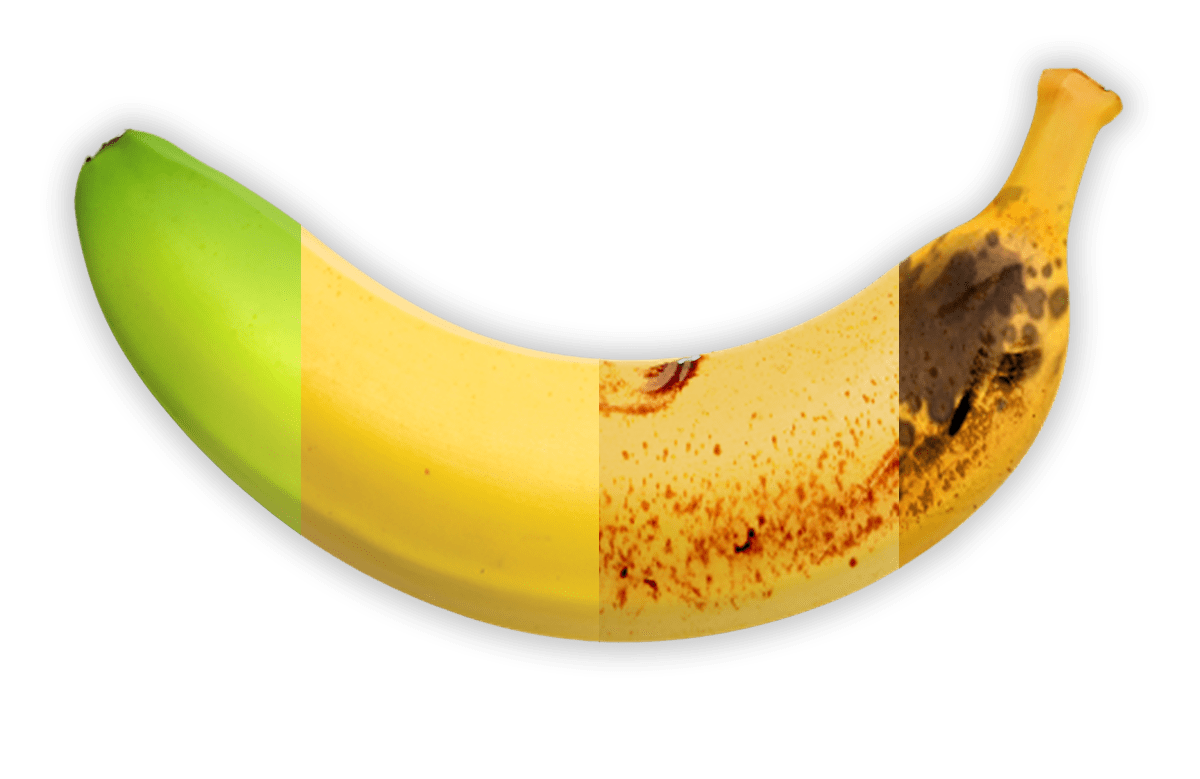Our bananas, which are available all year long, provide a natural source of fibre and nutrients. An inexpensive fruit that you can eat with no fuss are easy to store. A popular choice at your local supermarket.
Banana Growers in Tully and Mareeba
Flegler Group
Bananas from the Flegler Family
Your Trusted Australian
Banana Supplier for over
75 years!
What would you say to a snack that’s satisfyingly tasty that comes conveniently packaged and protected in a natural cover? Plus filled with natural health benefits?
You’d say yes!
Bananas are considered a healthy source of nutrition containing no fat, cholesterol, or sodium. They provide dietary fibre, potassium and iron as well as vitamin C and vitamin A. Bananas truly are amazing.
Bananas’ low caloric content makes them an excellent option for weight-conscious individuals. One medium-sized banana has approximately 100-110 calories. It’s a nutrient-rich fruit that helps you feel full and not crave more unhealthy snacks.
According to Pub Med Central:
“Eating more fibre from vegetables and fruits has repeatedly been linked to lower body weight and weight loss.”
Unripe bananas contain more resistant starch, which can be effective in making you feel more satisfied and less hungry.
Aid in
Heart Health
Bananas are high in a mineral called potassium, which is vital for keeping blood pressure under control as well as improving nerve function. A healthy heart needs potassium to aid in promoting healthy blood pressure.
126
10
8
Bananas are wholesome foods, packed full of vitamins, minerals, and other beneficial nutrients, yet they’re low in calories compared with many other foods. Calorie count varies according to size. Although, consider the calorie count of a cereal bar, which could be well over 200 calories, depending on which type you choose.
A chocolate bar will probably have more than double the number again. But you’ll find a banana satisfyingly chunky and filling, so if you’re watching your weight, remember, bananas can help.

Bananas are
Rich in Antioxidants
to Improve Health
Bananas contain several different types of antioxidants, including beta-carotene, lutein, and selenium, all of which play roles in keeping your body healthy and youthful.
Antioxidants can help decrease the risk of heart disease and other degenerative diseases. Free radicals can damage your cells through oxidation. Antioxidants prevent that damage in your body.
Bananas are rich in antioxidants. Eat bananas daily or several times a week to help your body fight the damage to your cells from free radicals.
They’re packed with simple sugars which are excellent for a fast energy boost, yet the high fibre content avoids the sugar highs and crashes associated with other sweet snacks.
Bananas also contain tryptophan, an amino acid with close links to mental well-being and heightened mood. The fruit’s abundance of vitamin B makes for healthy, well-functioning cells, lower cholesterol, and better mental alertness.
Enhance Kidney Function and
Moderate Blood Sugar Levels
Bananas are filled with fibre for better digestion, smoother blood sugar levels, easier weight control, and even reduced risk of some kinds of cancer. This fibre forms a gel when it dissolves in liquid during the digestion process. This type of fibre is effective in moderating blood sugar levels.
It’s best to eat bananas after a meal if you want to regulate blood sugar levels. If you want to control your appetite, you should eat a banana before your meal since it can help slow down the clearing of your stomach.
Proper kidney function requires potassium to effectively manage the regulation of blood circulation. Eating bananas can help to lower your blood pressure.
Bananas can be effective in maintaining proper kidney function and reducing the progression of kidney disease. They’re also high in magnesium, which is essential for good heart health and also lowers the risk of diabetes.
Adding Bananas into Your Diet
Are you making the most of your bananas? As well as their affordability, they have oodles to offer, as people like yourself are discovering every day.
Bananas are satisfyingly filling, stemming hunger pangs and boosting energy levels. With their easy eating, soothing texture and revitalising qualities, they are the perfect option when you’re on the go!
For
Snack Times
Bananas make a neat, handy snack, with its natural wrapper-come-holder. Its rich mix of nutrients and natural sugars will sustain you between meals and energize you for dealing with challenges, without causing any bloating or heaviness. If you’re preparing to give a speech or performance of any kind, a banana will be a safe option for an energy-boosting snack, eaten half an hour or so beforehand. With its gently sweet taste and bland, soothing texture, it will also steady your nerves, and its potassium content may help control your blood pressure. You can recycle its skin, too, enriching the earth for future crops.
Eating bananas helps you to lose weight, especially if you substitute them for processed foods.
There are approximately 3 grams of fibre in a medium-sized banana. The fibre found in bananas is prebiotics. Those are not digested in your digestive system. When prebiotics moves to your large intestine, they provide food for the good bacteria in your gut.
Pectin is a part of the fibre that is found in bananas. It can help soften stool and keep your digestive and excretory system functioning properly.
Convenient and
Delicious
When choosing a snack to take on a journey, it’s worth considering the convenience of a banana. It will fit comfortably in a case, bag or large pocket, and will be light and dry to carry about. It will also fit in the glove compartment of your car or on your fold-down table on the train, bus or aeroplane – and won’t even roll off, as an apple might. You won’t need to wash it before eating, despite the dirt and germs you encounter on public transport, as its thick skin will protect it. Just one word of warning: don’t leave it covered up without air for too long, or it may turn black and squishy.
Four Easy Tips
to Use Ripe Bananas
Don’t toss overripe bananas in the trash! Old, or overly ripe, bananas can be used beyond the normal idea of peeling and eating or sliced over cold cereal. Get more use out of overripe bananas by following these easy tips.
The stage of ripeness that determines whether a banana is too old to eat depends on individual preference, so as soon as your particular taste has deemed the bananas are too old for regular consumption, immediately peel and slice the bananas, dip them in lemon juice, then place in an air-tight container to store in your freezer. Bananas frozen in this way can last for months, which means the next time you see a produce sale featuring overripe bananas, stock up and utilize this method of freezing for the following uses. It is also possible to freeze bananas unpeeled, but it is difficult to slice and peel frozen bananas because the peel will turn dark, but this does not affect the banana.
